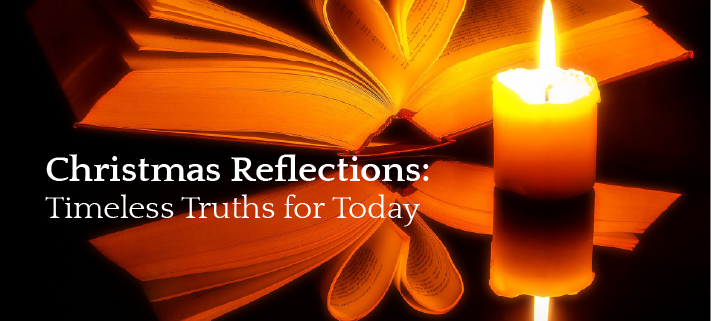Advent Devotion – Just As He Said – Day 15
Just As He Said
Wanting vs. Needing
“Surely he was taking up our weaknesses, and he was carrying our sufferings. We thought it was because of God that he was stricken, smitten, and afflicted, but it was because of our rebellion that he was pierced. He was crushed for the guilt our sins deserved. The punishment that brought us peace was upon him, and by his wounds we are healed.”
Isaiah 53:4,5, EHV
If you could create your own Messiah, what would he be like? A big, jolly man coming down your chimney bringing the exact gift you asked for? A president who agreed with all your stances and fixed all the country’s problems in the first four years? A superhero with all of the superpowers needed to save the day? A genie that could grant your every wish?
It probably wouldn’t be God becoming an ordinary Jewish man who couldn’t be picked out of a lineup. He certainly wouldn’t have been born in the secrecy of night in a manger destined to live his life as an outcast, suffer in the most gruesome of ways, and die on a cross. That doesn’t seem like the Messiah we would imagine, and it wasn’t the kind of Messiah the people in Jesus’ time were expecting.
Many of the Jewish people in Jesus’ day would have known about the coming Messiah. They would have heard stories passed along from generation to generation—some in line with God’s promises, and some in line with their own ambition. I imagine they were waiting for someone with the riches of Abraham, the insight of Moses, the strength of Gideon, the power of David, and the wisdom of Solomon. Many were looking for relief from their struggles and freedom from their governing authorities. They were looking for a king, a revolutionary leader, a spiritual guide who would be more of a cheerleader. But as we know, they did not get the Messiah they wanted. Instead, they got the Messiah they needed.
There is a difference between wanting and needing something. The people back then may have wanted to make their lives easier here on earth, but what they needed was a Savior from their sin to break the bonds of death, defeat the devil, and reunite them with God. That is just what Jesus did. He became true man to live and die as our substitute. He did all the good we fail to do, resisted the evil we cannot, and endured the suffering of the cross and separation from God so we will never have to. Jesus took our weaknesses, pain, griefs, sufferings, sorrows, rebellion, guilt, and punishment from us and put them on himself. He lifted those heavy yokes from our shoulders and carried them for us so that we could live every day knowing we only have his light yoke to carry. He was willingly stricken, smitten, afflicted, punished, crushed, and chastised because of us.
Did you catch that in the reading? “We thought it was because of God that he was stricken, smitten, and afflicted, but it was because of OUR rebellion that he was pierced.” It was because of the Israelites, it was because of all the people of Jesus’s time, and it was because of us that he suffered on the cross. We needed someone to pay for the sins of all, one time, so that we could have peace and be reunited with God. The only person for that job was this Messiah, Jesus Christ.
Prayer:
Heavenly Father, thank you for sending your one and only Son to be our Messiah who came to save us from our sin and bring us peace. Thank you for sending us what we need instead of what we may want. May we always trust in you above all else. In Jesus’ name we pray. Amen.
Written by Katelyn Strucely
Provided by WELS Women’s Ministry



